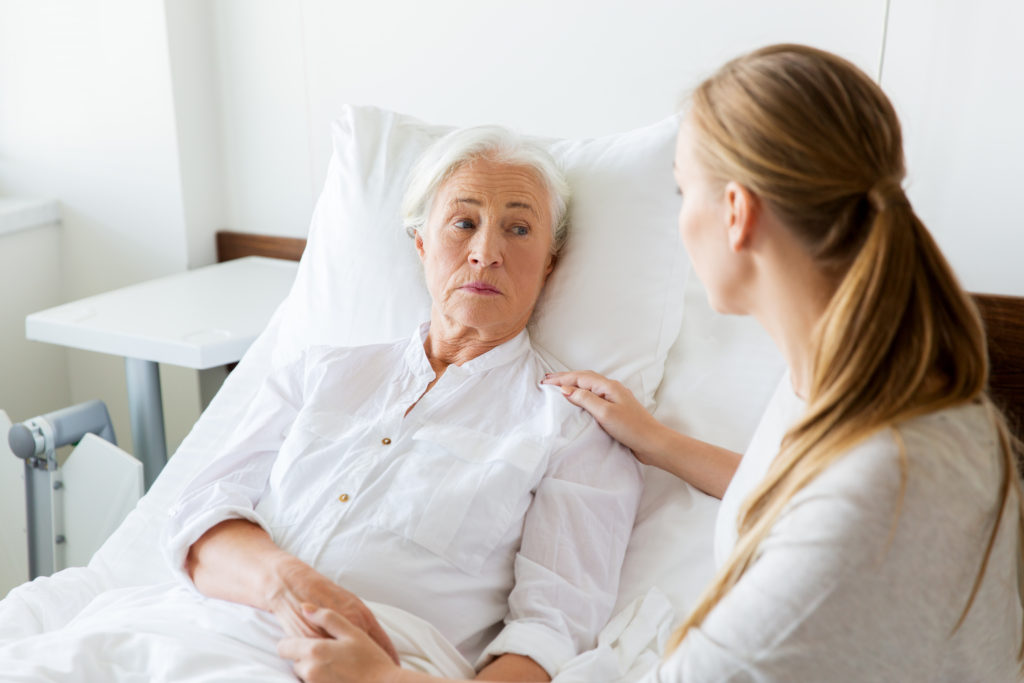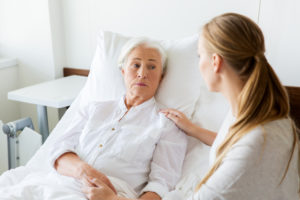
Gentreo was designed not just to help everyone create an estate plan, but we want to help throughout your life. Many of our users are members of the sandwich generation, and are caring both for their children and their aging parents. Caregiving can be extremely difficult, but having a plan can make it a little bit easier, especially as your parent nears the end of their life.
In honor of National Caregivers Day (February 18th, 2022), we spoke with several experts in the field to get their take on tools caregivers can use and how they can best prepare for caregiving.
What Are the Best Tools & Resources for Caregivers?
The home environment is an important and often forgotten tool of effective caregiving, according to Elizabeth Kennedy, Home Health Physical Therapist (PT), Certified Aging in Place Specialist (CAPS), and Founder of Age Fearless Academy.
“One of the best and frequently overlooked tools for families and caregivers of aging parents is planning for and creating an optimized home environment. A home that supports senior independence enhances quality of life and makes the caregiving role more manageable.
Having a proactive mindset and anticipating potential problems is the key to success,” she said.
Elizabeth recommends:
- Decide where the caregiving will occur – Will the aging parent continue living in their own home or move to a family member’s house?
- Ensure that the home has convenient and accessible features for both the older loved one and caregivers.
- Research your options for home modifications and aging-ready solutions, even if they won’t be made immediately (you don’t want to be making decisions during stressful events like falls or hospitalization)
“In my over 20 years of Home Health Physical Therapy experience, I have found that the vast majority of families are reactive, searching for solutions and making home modifications only after problems occur. Frequently, they could have prevented issues or lessened their impact if they had taken a proactive approach. In many cases, had the home environment been created in anticipation of future caregiving needs, the person would have been able to come home instead of going to assisted living or a nursing home,” Elizabeth said.
Related Article: Assisted Living, Home Care, and Hospice – Things You Need to Know About Caring for Your Aging Parents
“Luckily, there are many great resources available to caregivers. For financial assistance, there are options for their loved ones and for caregivers themselves. SilverBills and Carefull can help manage and protect the care recipient’s finances. Givers can help caregivers manage their own expenses, save through partner deals, and find tax credits and reimbursements available to them. For care coordination, caregivers can benefit from tools like Wellthy and SeniorLink. Caregivers can also find respite from Papa and Visiting Angels,” said Max Mayblum, Certified Senior Advisor (CSA) and Founder and CEO of Givers.
Max also recommends that caregivers reach out to their local Area Agency on Aging to discover all of the support options available in their local community. “AAAs coordinate and offer services that help older adults remain in their homes – if that is their preference – aided by services such as Meals-on-Wheels, homemaker assistance, and whatever else it may take to make independent living a viable option,” he said.
Finally, Max had an important note to share: “While caregiving is undeniably about helping loved ones, it is imperative that caregivers take care of themselves. Caregiver burnout is a very real state of physical, emotional, and mental exhaustion that can develop over many years or appear suddenly, usually when caregivers are sacrificing their own health in an attempt to provide an unsustainable level of support. Since your loved one depends on you, your health is part of your loved one’s health. Taking steps to avoid burnout is a selfless act in the best interest of everyone, yourself included.”
Related Article: The Talk: Discussing End-of-Life Planning with Your Parents & Loved Ones

How Families Can Best Prepare for Caregiving
As you work with your aging parents to set a plan for how caregiving will work, it’s important to be patient when you need to introduce new technology, according to Bonnie Melton, M.Ed. Senior Instructional Designer at Livetech, LLC.
“Training and education of older adults on digital literacy is key. Don’t assume that a user interface is intuitive. Write down instructions for the most basic things – even turning on a phone or swiping up/down/left/right are not intuitive for lots of people. If you find a tool that you think your older adult would benefit from, be patient, guide them through it, practice with them, and look for technology training events. Libraries, nonprofit organizations and senior centers often have these kinds of learning opportunities,” she said.
Related Article: Planning for Incapacity – Documents to Have and Steps to Take
Does your parent have an estate plan in place? Have they prepared documents like a Will, Health Care Proxy, and Power of Attorney? According to Julie Fry, eldercare expert and Co-Founder of Gentreo, they really need to.
“Every adult, no matter what their age, marital status, or net worth needs an estate plan. If you don’t have documents like a Health Care Proxy or Power of Attorney, you leave decisions about your medical care and finances to the courts. That means that your adult children and other loved ones cannot help you if you become incapacitated,” Julie said.
If your parent passes away without a Will or a Trust, there’s a lot of added risk and potential harm to their estate. “The courts decide how their assets are distributed, and it probably wouldn’t be how they would want. Also, the whole ordeal could cost 3-8% of the estate and take up to two years to settle – none of us want to be dealing with all of that after losing a loved one,” Julie said.
Caregiving is unique to your family, and many aspects of preparation will be unique as well, according to Gina Harrow, Executive Director of the Yellow Ribbon Fund.
“Each family is different. While some caregiving roles can be unexpected, others can be anticipated. In preparing for a caregiving role, it is essential to have open discussions about expectations, legal and financial planning and defining roles in the case of shared responsibility,” Gina said.
Related Article: Eldercare Planning: Questions to Ask, Checklists & Tips for Developing a Care Plan
The caregiver should also consider their own needs, as well as how to make their responsibility more manageable. According to Gina, caregivers “often face mental challenges such as stress, isolation, burnout, depression, and anxiety. Physically, caregivers can struggle with exhaustion, irritability, and often neglect their own health. Caregivers must recognize that asking for help or support does not mean weakness or failure; it’s actually quite the opposite. Asking for help and support is more a sign of strength and responsibility. Support programs that deal with respite, emotional, medical, and financial support are often the most beneficial. However, each caregiver and their needs are different,” she said.










